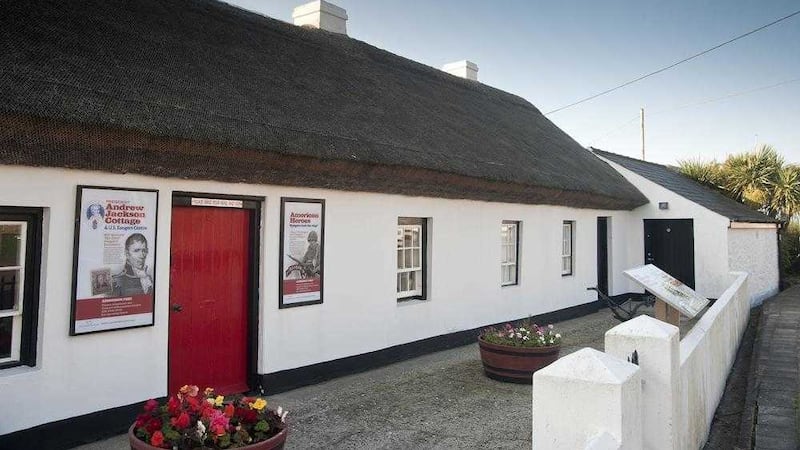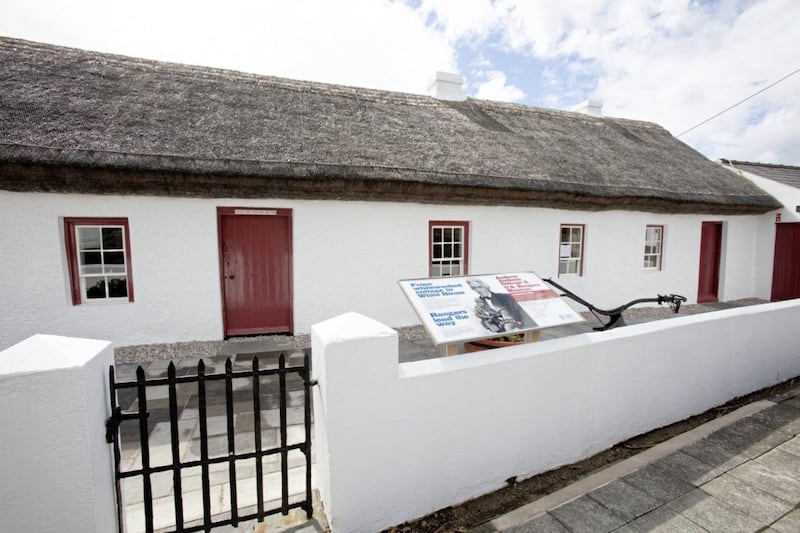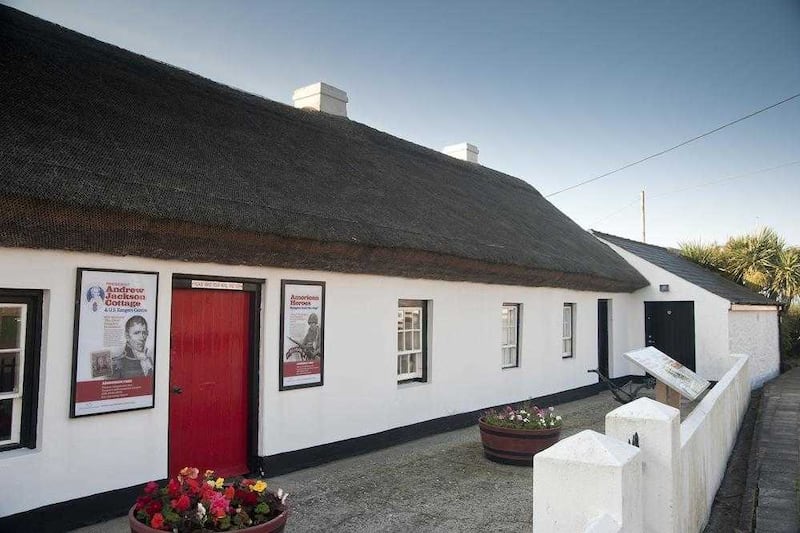CARRICKFERGUS'S most famous son is being unceremoniously downgraded on the US $20 note in favour of a female anti-slavery campaigner - to much furore across the pond.
Andrew Jackson, seventh President of the United States, is celebrated with a dedicated centre in the tiny townland of Boneybefore where his father was born.
The cottage is one of around 12 built in the same style when there was an influx of lowland Scots people into that part of Co Antrim.
The original Jackson cottage was demolished in 1860 to make way for the railway.
The remaining house was built by the Donaldson family and they lived in it until 1979, when it was sold to Carrickfergus Borough Council.
Jackson's parents left their neighbouring home for the US in 1765 - and the rest is a somewhat controversial history.
The nineteenth century president's civil rights records has been thrown into sharp focus by the US Treasury Department's announcement he will be relegated to the back of their $20 bills from 2030.
His foremost defender has been presidential candidate Donald Trump, whose campaign has been said to echo "the style" of Andrew Jackson.
The Republican front-runner branded his removal "pure political correctness".
However, Jackson's substitution with Harriet Tubman, an abolitionist, who escaped slavery and helped smuggle 70 families to freedom, has been widely welcomed with supporters objecting to her having to share even part of the note with a slave-owner.
When Tubman was five or six years old she was hired out as a nursemaid and ordered to keep watch on the baby as it slept - and whipped when it woke and cried.
She recounted being lashed five times before breakfast on a particular day.
In 1849, Tubman escaped to Philadelphia but immediately returned to Maryland to rescue her family, making 13 trips to bring one group at a time out of the state to freedom.
Meanwhile, Jackson - instrumental in the foundation of the Democratic Party - owned hundreds of slaves who worked on his Hermitage Plantation in Tennessee.
Orphaned at the age of 14, he became a noted soldier, instrumental defeating the British during the Revolutionary War.
He was a cotton-grower, owning as many as 300 slaves in his lifetime, permitting them to be whipped to increase productivity.
His 1830 Indian Removal Act also forced hundreds of thousands of Native Americans from their southeastern homes, thousands dying while relocating out west.
This `Trail of Tears' during his administration ignored a Supreme Court decision favouring the Cherokee.
However, he was a complex character and, during his marriage, he and wife Rachel adopted two Native American children.
One of them, Lyncoya, was found on the battlefield with his dead mother in 1813 and sent home to Tennessee by Jackson.
Lyncoya was educated along with Andrew Jnr - his nephew and adopted son - and the president had aspirations of sending him to West Point military academy, but was unable due to "political circumstances made that impossible".
His slaves were encouraged to live in `family units' of five to 10, housed in 20-square-foot cabins - larger than average slave dwellings of the time.
Historians, as late as 1923, still viewed Jackson as "…an ideal slave-owner".



